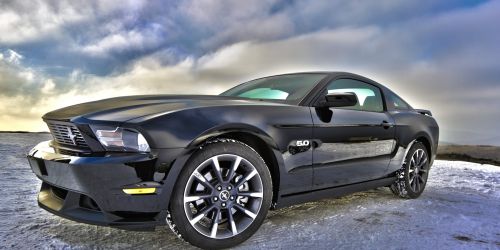Auction Precautions
Auction Precautions
AUCTION ACCESS:
Please Email us for the auction link:
THE FOLLOWING ARE GUIDELINES TO AVOID POTENTIAL DIFFICULTIES THAT MAY ARISE DURING THE AUCTION PROCESS
Cancelling bids: As per section 8(iii) of our Terms of Trade, it is possible to cancel a bid on the day of auction. However, some methods of cancellation being used are not acceptable.
The standard way to cancel is to type the word “CANCEL” in the Bid price box and keep the currency as JPY ( For this method we also need a call or text if the auction is approaching).
After 9am, cancellations will not be guaranteed, so we strongly recommend calling our office to notify us of your wish to cancel. For those texting us with WhatsApp or Viber, a text is also acceptable providing you receive a confirmation reply.
Unacceptable methods of cancellation:
- Adding a message to your bid.
- Moving it to another folder (e.g. “Shared” folder)
- Sending a CANCEL bid in USD or other non-JPY currency.
Electric Vehicles (EVs):
Electric vehicles cannot be shipped via RoRo or container options. Get Cars Japan STRONGLY advises against bidding on electric vehicles and will cancel any EV bids without exception. In the event that an EV purchase is mistakenly processed, the vehicle will be returned to auction and all resulting losses will be charged to the customer.
Year Model of Vehicles:
Japanese auctions list vehicles by the “first date registered in Japan” and NOT the manufacture year. This means that vehicles imported to Japan used may be older than the year in the auction listing. For example, a 1980 vehicle imported into Japan in 2010 will be listed in the auctions as 2010.
NOTE: It is the customer’s responsibility to check the year model with a VIN checker or a vehicle manufacturer BEFORE bidding.
Outbid In House: Due to our large client base, the situation of 2 or more customers bidding on the same vehicle often arises. Should we purchase the vehicle under both (all) customer budgets, the customer with the highest bid will be invoiced.
USS Tokyo section with higher fee: For the section in USS Tokyo with lot numbers in the 65000s, there is an extra auction charge of 10,000 JPY.
The discount FOB fee for cars in this section will be 75,000 JPY
Inappropriate use of translation and bidding system:
Our translation service is work for paid translating staff.
We kindly request that you only request a translation AFTER checking the average selling prices in the Sales Statistics section.
Similarly, please do not bid a fraction of the market value. Such activity causes unnecessary congestion in our daily bidding schedule. Customers found to be using us for free translations and not entering reasonable bids will be invoiced 100 JPY per translation.
Domestic Purchases and Name Change: For vehicles with current registration (shaken) that are purchased for domestic use, the name on the registrations needs to be changed into the new owner’s name by the end of the next month. For example, if you purchase a vehicle in October, we need to submit a clear copy of the “shaken” with the name changed by the end of November. Failure to change the name in time incurs a penalty of 10,000 JPY per week. For this reason GCJ will keep a 20,000 JPY deposit when a vehicle with shaken is purchased for domestic use. Once the document with the name changed has been received the full 20,000 JPY will be refunded. This does not apply to vehicles on which the registration has expired.
Auction sheet translations recommended: We strongly recommend customers get translations before bidding on vehicles. Bids without translations will be accepted but at the customer’s own risk.
Translation notes: Japanese has no plural, so comments such as “burn hole” in Japanese may mean more than one. Other common plural issues are “scratch”, “oil leak around engine”, “stone chip”, and so on. Even if the translation of a defect is singular, customers should be aware that there may be more than one.
Items Inside Auction Vehicles
Get Cars Japan does not guarantee any items inside cars or in auction photos.
Although the items are very unlikely to go missing, when bidding please understand that you are bidding on the vehicle itself and not its contents. NOTE: Inner cargo is not allowed in vehicles shipped by RORO.
Mirror scratches: Roughly 90% of cars have “mirror scratches” in the translation. This refers to the mirror cover (painted backing) and not the glass part of the actual mirror.
Light line scratches in paint: A common issue in Japan as roads are narrow and there are often times when a driver finds their vehicle brushing up against plants of some kind. This does not cut deeply into the paint and leaves a visible line in the clear coat. In most cases it can be polished or buffed out.
Vehicle Condition: The photos supplied are strictly to show the appearance and NOT the condition. It is useful to choose a car of your liking by its “look”. The condition however should be solely judged on the report of the auction inspectors (which independently evaluate the vehicle and do not benefit from being generous with their ratings).
Vehicle Model and Options: Due to the possibility of sellers making errors in their vehicle listing, it is essential that clients carefully do any necessary research prior to bidding. Our site provides a Month of Production function for Japanese vehicles using the Japanese Chassis Number. For foreign vehicles please use an online VIN checker or call a dealer and have them check that the VIN matches the year, colour, options as listed.
Get Cars Japan is supplying a proxy service and cannot be held responsible for errors made by a third party (auction or seller) since the claim period is less than 1 week.
Translation Comments: Stone chip – refers to a chip in the windscreen unless otherwise specified. Although an X on a windscreen indicates “needs replacing”, for many countries a crack repair will often suffice.
Seller’s Sales Points: Get Cars translates the seller’s sales points and other notes when relevant, but our main focus is on inspection comments. To protect our company against unnecessary claims, seller’s notes will not be translated if illegible. Some sellers may mean one thing by a word while others may mean something else. A common example is “back monitor” which can mean “reverse camera”, or “rear TV screen”.
Spare keys: Sellers sometimes list a spare key as a sales point. In most cases where a spare key is NOT mentioned, the customer should expect there isn’t one, and hope that there is. Get Cars Japan handle spare keys meticulously and we ensure the key is labelled and posted via DHL or another courier with tracking number. Although we take such care in handling, we cannot guarantee the safe delivery of a key and as such request the understanding of customers in the rare event that a spare key goes missing.
Furthermore, asking auctions to check with sellers for spare keys has to date been 100% fruitless.
Bid entry cutoff time: Although Get Cars Japan can accept bids at any time during the day, we are unable to guarantee any bids received after 9am Japan time. For customers entering bids after 9am, we recommend that you call or text your handler here to make sure the bid is received (especially for soon approaching bids). Due to the proxy nature of the bidding system, it does not automatically go to the auction.
Bid Flex Amounts: Customers may provide a standard “flex amount” which give us permission to overbid in the case that the auction is ending and there just seems to be one other bidder. Some feel it is better to spend an extra 5,000 or 20,000 to WIN a car, rather than lose one by that much. Now, please note that there is no guarantee that your flex will be applied. Although we do our best to ensure the flex it used, there may be times when we are busy or rushed, or have staff unfamiliar with one’s particular flex, and it may not be applied so we kindly request that clients do not hold us to that.
First time purchases:
For first-time buyers, our policy allows only one vehicle purchase. Once the transaction is complete, clients will be permitted to bid on multiple vehicles in a single day. As a guide, we accept up to five bids per vehicle you wish to purchase on that day. When entering multiple bids, please use the grouping function so that we know how many vehicles you intend to purchase.
Unpaid accounts:
Get Cars Japan reserves the right to change ownership of a vehicle purchased by a customer if said customer fails to fully pay for other vehicles won through our auction system or purchased via other channels.
This may mean that the consignee of a vehicle which has already shipped may be changed, as said vehicle was considered collateral when bidding on the vehicles purchased afterwards.
Negotiation purchases:
When a vehicle at auction does not meet the reserve price, we use the term “passed” and there is usually an opportunity to purchase via negotiation (by entering an offer directly to the auction who will take that offer to the seller). When we are successful, the auctions charge 10,000 JPY for this service, and it will be added to your purchase price. For example, if you receive a result “Bought by nego 500,000 JPY”, the vehicle price on the invoice will be 510,000 JPY.
Nyusatsu Auctions:
In English this is termed a “Tender” auction.
Nyusatsu means “bid entry” which is not a live auction.
How Nyusatsu works:
For Nyusatsu auctions, you have to pay your maximum bid, so it is difficult to get a bargain.
e.g. You enter 200,000. Second highest bidder is 100,000. Purchase price is still 200,000. We enter your bid in the morning and get the result later in the day. Because of this, if you only wish to buy 1 car, cars in Nyusatsu auctions cannot usually be part of a group.
We will not be able to bid on the other cars in the group between when the bid is tendered, and when the result is available.
A lot of Nyusatu auctions also have an extra 10,000yen auction fee which will be added to the car price or FOB charge, and they make us use their transport company which charge higher rates than our discount transport companies.
Imported Used Vehicles: The registration document for vehicles in Japan displays the first year and month of registration in Japan. Unfortunately it does not have a manufacture year, and the auctions also list the vehicle by the date on the document. Due to this arrangement, it is important that customers be familiar with the look of year models they are after, and use online VIN checkers to confirm the year model before bidding. For example, a 1995 Mercedes-Benz imported into Japan in 2010 will be listed in the auction as a 2010 model. It is also important to note that some vehicles imported into Japan may have the mileage listed in miles. If “Km” is not circled, please check with us.
Grouping: Our grouping function allows you to enter bids on more cars than you wish to purchase. Please do NOT group bids for separate dates. This may result in you purchasing more cars than you wish to buy. How to group: The alphabet letter groups the bids together, and the number indicates how many cars you wish to win in that group. For assistance with using groups for bids, please Email
Please do not enter a bid and a translation request together. Doing so will cancel the bid and you may miss out on winning an auction.
If you enter a bid after the translation request but before the translation has been processed, please write: No translation OK
Deleting bids: The trash can icon can be used to delete a bid. This function is available until 9am on the day of the auction and effectively cancels the bid. We recommend not deleting translated lots in case a car comes up again in the auctions. The translation will remain in the Archive as long as your account with us is active. If you recognize a car from a previous week, you can check the translation in Archive instead of requesting a translation again. This gives us more time to focus on your new translation requests.
Last Minute Corrections: From time to time a correction may appear as late as a minute before the auction. For a lowered grade or a potentially worrisome mechanical issue, we generally cancel the bid to protect the customer.
Flood Vehicles: Auctions will usually make a note on the inspection sheet should they be reasonably certain that a vehicle has been submerged in water. We recommend customers do NOT bid on such vehicles. However, should “flood” appear on the translation and you still wish to bid, please write “flood noted” in the bid text. Otherwise we may assume that the translation was overlooked and subsequently cancel the bid.
New Zealand Precautions: Vehicles going to New Zealand under standard compliance (less than 20 years old) must have a 3 digit emission prefix on the chassis ID. This is visible on the auction sheet. Furthermore, vehicles repaired after a collision or those with rust may be costly to comply. Get Cars Japan strongly recommends avoiding vehicles with rust and damage/repairs to structural areas. For New Zealand it is also recommended to avoid vehicles pre 2012, and check that the vehicle has ESC (Electronic Stability Control) prior to bidding. Vehicles that do not have ESC cannot be complied.
Vehicles Unfit for RORO: Vehicles that have damaged panels that are jagged, are very low (clearance of 12cm or under), are dripping oil, have a slipping clutch, and various other mechanical issues may prevent a car from being able to be shipped by RORO. In such cases either having them repaired before shipping, or shipping by container will be necessary.
Transport from Auction to Dock: Unless otherwise requested we will transport your vehicle to the nearest shipping port to save you money. Most vehicles are transported to the shipping docks by truck (car carriers). In any case the vehicle has any problems during transport, or if the transport costs become higher than the intial amount, this will be charged to the customer. In certain cases the transport company may choose to drive the vehicle. If there are no trucks with available space going to a particular auction where your vehicle is purchased, it may be more costly to carry it by truck due to the expensive highway tolls in Japan. Customers have a choice to pay extra and avoid having the vehicle driven. Please tell us as soon as you know you have purchased the vehicle as we arrange transport very quickly. Please contact us for a list of prices from each auction to the shipping docks.




